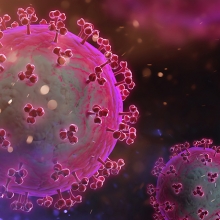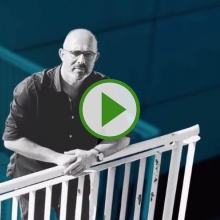Energizing the future
Dr. Michal Leskes joins the Department of Materials and Interfaces
New scientists

Batteries now power everything from tiny pacemakers wired to the human heart to the engines of zero-emission cars and light trucks. Just about everything electrical that is not plugged into the wall is run by a battery.
We take them for granted, but the innards of batteries are somewhat complex. Enhancing their performance - their ability to “keep going” for longer and store energy from different sources - is a research niche that a growing number of basic scientists around the world are starting to focus on. One of them is Dr. Michal Leskes, who joined the Department of Materials and Interfaces at the Weizmann Institute in July. She focuses on rechargeable batteries such as the lithium-ion batteries that power a wide range of consumer electronics ranging from laptops and cell phones to hybrid and all-electric cars.
She did her PhD studies at the Institute, where she contributed to innovations in solid-state nuclear magnetic resonance (NMR) research while working with Prof. Shimon Vega in the Department of Chemical Physics. As a postdoctoral fellow at the University of Cambridge, she used this powerful technology to peer into the inner workings of rechargeable lithium-ion and lithium-air batteries in action. She monitored the dynamics of the molecules, ions, and electrical charges formed at their electrodes during charging and discharging. That information is helpful in examining essential processes, such as capacity fading and inefficient recharging, which affect battery performance. It is this type of basic research that has the great potential to lead to new strategies for improving battery technology.
Dr. Leskes grew up in Rosh Pina, overlooking the Kinneret (the Sea of Galilee). She credits her high school chemistry teacher for both her interest in science and for encouraging her to date her future husband, Shai, a fellow student. “Naturally, I ignored her advice. What do teachers know about boys after all?” she jokes. But, a few years later into her army service, while sharing a long bus ride to their respective bases—hers in the Negev, his near Tel Aviv—the spark ignited. She went on to complete a BSc in chemistry at Tel Aviv University; Shai became a computer programmer.
As an undergrad, she spent one summer on the Weizmann Institute campus, as part of the Kupcinet-Getz International Science School for outstanding undergraduates, working in the lab of her future PhD advisor, Prof. Vega. Dr. Leskes was attracted to nuclear magnetic resonance (NMR) research because, she says, “It lets me look inside at the details of atoms and molecules. I love the chemistry of how different molecules interact and how small changes in the chemistry of a material can alter its properties. NMR lets me examine them even more closely. What is so intriguing to me is that the more you know about the techniques—how to manipulate the spins and control their interactions— the more information you can get on the materials and how they function.” Her PhD work with Prof. Vega on the theory and techniques of solid-state NMR contributed several improvements to increase its resolution.
The chemistry of batteries
For her postdoctoral work, Dr. Leskes was interested in studying a chemical system in action, and chose a lab at the University of Cambridge that worked with NMR as a tool to improve the performance of lithium ion batteries. “Battery research deals with a real piece of the energy situation; it is needed and highly relevant, and NMR gave me the means to look inside a working battery on the molecular level.”
The Israel National Postdoctoral Award Program for Advancing Women in Science, a donor-backed program spearheaded by the Weizmann Institute, helped Dr. Leskes and her husband make her postdoc period in England doable from a financial perspective. “More importantly,” she says, “it really confirmed that what I was doing was the right thing; that I can do what it takes to become a research scientist. And it gave me an extra push—just like my chemistry teacher had— to continue to grow in science.”
Now back at the Weizmann Institute, establishing a lab of her own, Dr. Leskes is committed to pushing the sensitivity and reach of magnetic resonance to new levels, with potentially revolutionary ideas about how to use this new power to improve the capabilities of a variety of high-performance batteries. She appreciates being back in the dynamic “give-andtake” of Israeli science, saying: “I am constantly involved in discussions—not just chats over coffee, but where people from various labs and different fields really get involved in each other’s work, and encourage each other.”
Her research involves the heavy use of a powerful, highly customized magnetic resonance machine (a new 7 Tesla to be acquired by the Institute) that can handle techniques from conventional NMR to dynamic nuclear polarization, utilizing the electrons spin. She hopes the results will be the ability to see more details of even smaller numbers of atoms and molecules, and that this kind of information will help her make storage batteries even more efficient and powerful.
Dr. Michal Leskes is funded by Comisaroff Family Trust, Dana and Yossie Hollander, Israel.








